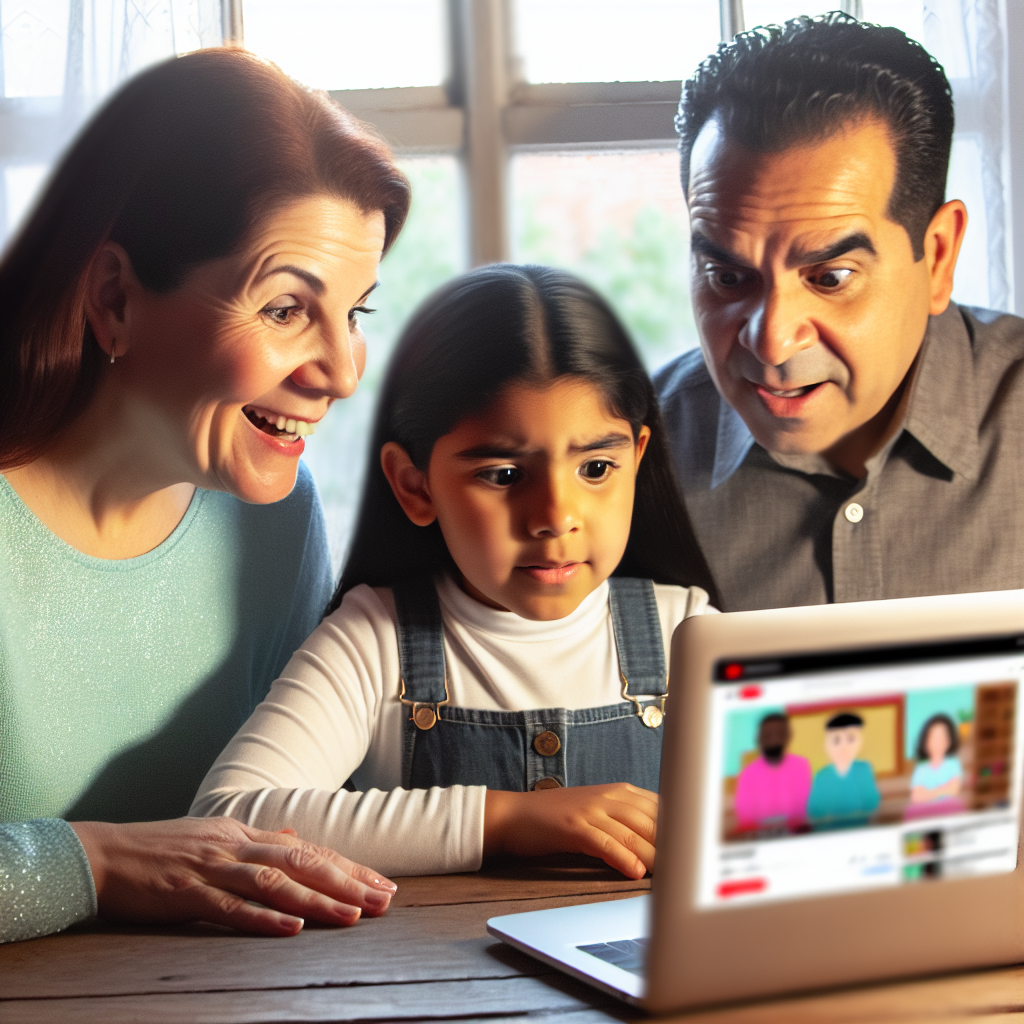Navigating the Digital Maze of Parenting Teenagers
Parenting teenagers in the digital age is a unique challenge that blends traditional guidance with modern technology awareness. The days of simply talking face-to-face are increasingly supplemented — or even replaced — by navigating social media, streaming content, and online communities. I found myself unexpectedly out-parented by Nidgle’s YouTube channel, a phenomenon many parents will recognize: when a source outside the family suddenly becomes the “expert” that teens listen to more than their own parents.
This experience opened my eyes not just to how savvy teens have become online, but also to the evolving tools and strategies needed for effective parenting in today’s digital environment. Understanding how to engage with these influences, including trusted channels like Nidgle’s, equips parents to connect more deeply with their teens and guide them safely through the online world.
Understanding the Influence of Digital Content on Teens
Why Teenagers Turn to YouTube for Advice
Teens naturally seek independence, and in an era dominated by digital interaction, they often turn to YouTube channels for guidance on everything from relationships to self-identity. Unlike traditional family advice, online creators often speak directly in the language teens understand, combining relatability with entertainment.
Some key reasons teens trust digital content creators include:
– Accessibility: Videos are available 24/7 on devices teens carry everywhere.
– Authenticity: Many creators share personal stories that feel genuine.
– Peer connection: Comments and community features foster peer validation.
– Visual storytelling: Complex topics get simplified through engaging visuals.
The Role of Channels Like Nidgle in Supporting Teens
Nidgle’s YouTube channel, with its focus on mental health, communication, and social topics, has become a valuable resource for many teenagers. The channel’s style mixes empathy with practical advice, often offering coping strategies, discussion prompts, and real-life examples.
By analyzing Nidgle’s approach, parents can learn how digital educators:
– Break down taboo subjects straightforwardly.
– Use storytelling to create emotional resonance.
– Encourage self-reflection through interactive comments or Q&A.
– Create a safe virtual space for teens to express concerns.
Recognizing these tactics allows parents to better understand their teenagers’ perspectives and the digital influences shaping them.
Effective Strategies for Parenting Teenagers in the Digital Age
Confronted with the reality that channels like Nidgle are teaching your teen better communication or resilience skills can feel humbling but also motivating. Here are proven ways to complement what teens learn online while maintaining open, trusting relationships.
1. Embrace Digital Literacy Together
Rather than ban or restrict access excessively, become familiar with the digital content your teen consumes.
– Watch Nidgle’s videos or other favorite channels as a family.
– Discuss the messages and ask your teen what they find helpful.
– Teach critical thinking about online information sources and potential biases.
This shared experience fosters mutual respect and encourages healthy dialogue about digital content.
2. Set Boundaries With Flexibility
Healthy limits around screen time and content types protect your teen’s well-being without creating rebellion.
– Create agreed-upon schedules for device usage.
– Use parental controls strategically but transparently.
– Encourage offline activities like sports, reading, or hobbies.
Flexibility is key; adapt boundaries based on your teen’s maturity and responsibility.
3. Model Open and Nonjudgmental Communication
When teens feel heard without fear of punishment, they’re more inclined to share their online experiences.
– Initiate conversations about trending issues or videos like those on Nidgle.
– Validate their feelings and avoid dismissing their interests.
– Offer guidance based on curiosity rather than criticism.
This approach cultivates a safe atmosphere for discussing challenging topics.
Recognizing and Responding to Digital Challenges
Cyberbullying and Online Safety
Parenting teenagers in the digital age means confronting risks such as cyberbullying or exposure to harmful content.
Signs your teen might be struggling online include:
– Withdrawal from social activities or sudden mood changes.
– Hesitation to use their devices or hiding screen activity.
– Changes in sleep patterns or academic performance.
Respond by:
– Encouraging openness about negative experiences.
– Reporting and blocking abusive users or content.
– Offering resources like counseling or trusted helplines.
Education about privacy settings and respectful online behavior also reduces risks.
Digital Overload and Mental Health
Excessive screen time can contribute to anxiety, depression, or sleep disturbances among teens.
Strategies to combat digital overload involve:
– Scheduling tech-free periods during the day.
– Promoting mindfulness and relaxation techniques.
– Discussing the difference between online personas and reality.
Channels like Nidgle often address mental health directly, serving as helpful supplements.
Harnessing the Power of Community and Resources
Parenting teenagers in the digital age is less isolating when tapping into support networks and expert advice.
Leverage Trusted Online Channels
Encourage teens to engage with responsible content creators like Nidgle who prioritize positive messaging and factual information.
– Bookmark favorite channels for easy access.
– Discuss content weekly to track your teen’s evolving understandings.
– Suggest creating digital journal entries inspired by videos to reflect on life lessons.
Connect With Parenting Communities
Online forums, social media groups, or local workshops provide spaces for parents to exchange ideas and experiences.
These communities offer:
– Practical tips tailored to raising digital natives.
– Reviews of apps and parental tools.
– Emotional support and encouragement.
For more expert advice and personalized support, visit khmuhtadin.com for consultations and parent coaching designed for today’s digital challenges.
Looking Ahead: Empowering Teens and Parents Alike
Parenting teenagers in the digital age demands both adaptability and engagement. Learning from platforms like Nidgle’s YouTube channel reveals that teens crave connection, authenticity, and understanding. When parents step out of rigid control and into empathetic partnership, they equip teens with skills to navigate both online and offline worlds safely.
By embracing digital literacy, setting thoughtful boundaries, fostering open dialogue, and responding proactively to challenges, parents lay the groundwork for healthy development. This mindset also empowers teens to become informed, resilient digital citizens — confident in their identities and relationships.
Remember, nobody has all the answers, and it’s okay to learn alongside your teen. Start by exploring trusted digital resources together today and take the first step toward stronger, more connected parenting in a rapidly changing world.
Ready to deepen your parenting approach? Visit khmuhtadin.com for tailored guidance on parenting teenagers in the digital age and transform your family dynamic.


